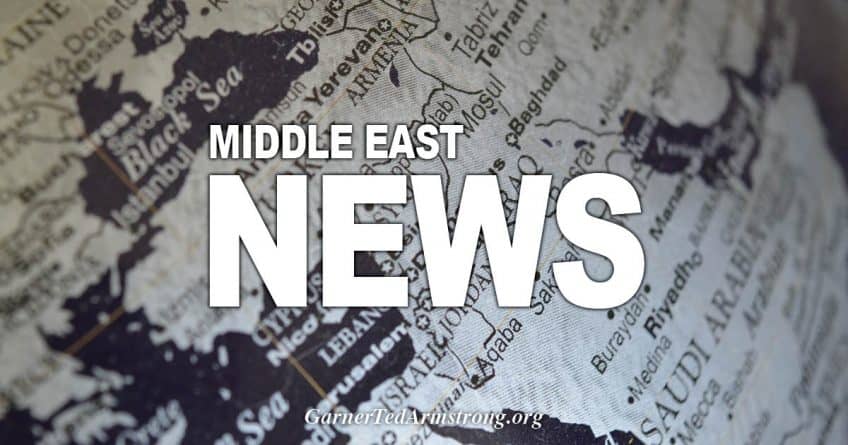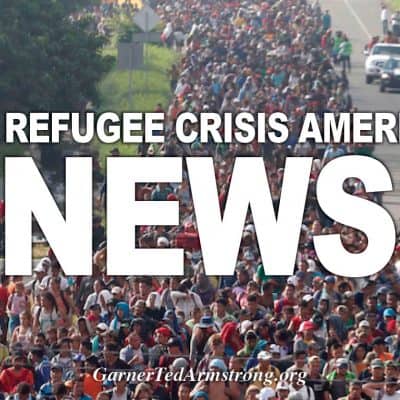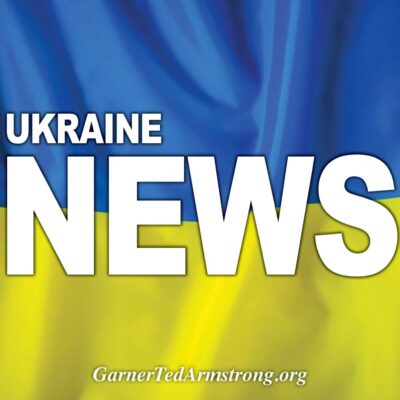
Syrian internally displaced persons in a camp north of Syria’s Idlib province on Feb. 17. (Rami al-Sayed/AFP/Getty Images) (Rami Al Sayed/Afp Via Getty Images)
For years, Syria’s besieged province of Idlib has served as a final haven for those escaping forces loyal to President Bashar al-Assad. But they are now running out of places to go. Turkey, which already hosts upward of 3.6 million Syrian refugees, has closed its border, even as it threatens to launch a retaliatory campaign against Assad’s regime.
Convoys of civilians have snaked their way out of Idlib’s cities as regime artillery and Russian aircraft pounded what they say are rebel positions. Hundreds have been killed since the offensive began, while eyewitness reports suggest the regime and its allies have indiscriminately targeted schools, health facilities, and mosques in a “scorched earth” advance that has ravaged dozens of towns. The current movement of people is the largest human exodus since a 2017 campaign carried out by Myanmar’s military forced hundreds of thousands of Rohingya Muslims to seek sanctuary in neighboring Bangladesh.
Then there’s the brutal cold. Last week alone, more than a dozen refugees died of exposure. Aid workers, mostly operating from across the border in Turkey, say they are overwhelmed and warn of a dire shortage of tents. Potable water is in short supply and sanitation facilities are mostly nonexistent as fleeing civilians set up ramshackle camps in the depths of the Syrian winter.
For Assad, though, it’s a moment of triumph. On Monday, he gave a speech in Aleppo hailing the regime’s reconquest of a strategic highway that enters the city via Idlib.
“We know this liberation does not mean the end of the war or the crushing of all plots or the end of terror or the surrender of the enemy, but it definitely rubs their noses in the dirt,” Assad said. “This is a prelude to [the rebels’] final defeat, sooner or later.”
On the same day, Mark Lowcock, the U.N. undersecretary-general for humanitarian affairs, warned in a statement that the situation in Idlib could soon pose “the biggest humanitarian horror story of the 21st century” if world powers don’t force a cease-fire.
But, as is ever the case in the Syrian war, the world is largely looking away. The Trump administration is laser-focused on disengaging from the conflict. NATO officials have reiterated that the alliance won’t back Turkey should it embark on another foray into Syria. Clashes between Turkey and regime forces have already led to dozens of deaths on both sides. But Assad is keen to press his advantage.
“The Syrian regime is determined to wipe out the last stronghold of rebel resistance in Idlib province. … And Russia has given the offensive its full support, through airstrikes,” my colleagues reported last week.
“Moscow’s goal is not just backing an old friend, Syria,” they added. “It’s also about projecting Russian global power against NATO, all the while juggling President Vladimir Putin’s complicated friendship with another like-minded authoritarian, Turkish President Recep Tayyip Erdogan.”
Russian and Turkish delegations concluded another round of talks in Moscow on Tuesday. The talks were aimed at de-escalating the conflict, but it is unclear how much genuine progress was made. The two countries find themselves locked in a tense geopolitical contest, at opposite ends of two civil wars, in Syria and Libya.
“The rapprochement between Ankara and Moscow, which has accelerated since the 2016 coup attempt against Erdogan, has been one of the surprising regional dynamics of the past few years,” noted Sinan Ulgen, the executive chairman of the Istanbul-based think tank EDAM. He pointed to speculation that Ankara was tacitly pivoting toward Moscow after the NATO member’s controversial acquisition of a Russian missile defense system.
“But the true limits of a convergence of Turkish and Russian interests may have been reached in Idlib,” Ulgen added. “Direct Turkish-Syrian conflict could inflict lasting damage to the burgeoning Erdogan-Putin bromance.”
Turkey, meanwhile, is in a bind. Erdogan, an illiberal demagogue, has irked most major Western governments in recent years and finds himself in a political mess: The proxy rebel groups that Erdogan’s government has backed in Idlib are facing a slow defeat, while the majority of the Turkish voting public is staunchly opposed to welcoming any more Syrian refugees into the country.
“What should have been a balancing act between Russia and the West is now looking like a prison for Turkey,” wrote Washington Post columnist Asli Aydintasbas. “Whatever the original motivation was, Erdogan and his allies have made Turkey too vulnerable — and isolated — to stand up to Russia over Idlib.”
The choices in Idlib are grim. “If you go back you can be detained and spend your life in jail or worse,” a Syrian named Obaid told CNN, when reckoning with the prospect of living once more under Assad’s rule. “I would rather die than ever go back to the regime.”
Source: https://www.washingtonpost.com/world/2020/02/19/disaster-syria-russia-turkey-clash/
[Disclaimer]









